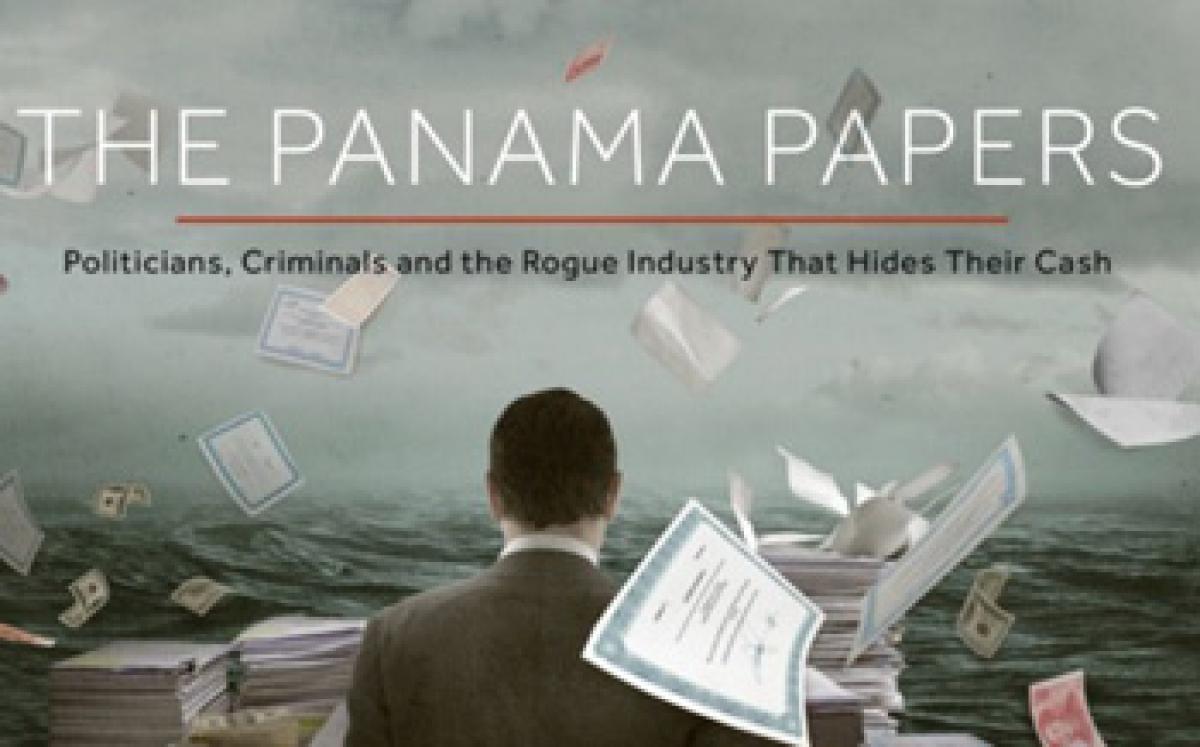Live
- 10 career opportunities with a public policy degree
- TG Medical Council cracks whip on fake doctors
- TTD takes up mammoth waste management exercise
- Celebrating the power of communication
- Standing at work can actually be detrimental to BP
- Adani US bribery case reaches SC
- Prez, PM to address special event to mark Constitution Day
- I owe every film of mine to Vijay Sethupathi: Eashvar Karthic
- Achoo! City faces spike in flu, cold, cough cases
- CPM demands TTD to allocate Rs 100 cr every year for Tirupati development
Just In

Panama is only one among many tax havens. The Mossack Fonseca records show how the Indian laws were flouted by the people who have set up these companies in Panama. Thus, the Indian connection in Panama papers expose is only a tip of the ice berg.
The Panama papers have once again exposed the vulnerability of the Indian economy to the predators of black money. Despite political Halla Bol on the issue and the ruling BJP deriving electoral dividend from the issue in 2014, precious little seems to have been done on the ground to track and curb illicit flows from Indian economy.
Panama is only one among many tax havens. The Mossack Fonseca records show how the Indian laws were flouted by the people who have set up these companies in Panama. Thus, the Indian connection in Panama papers expose is only a tip of the ice berg.
Generation of black money and its stashing abroad in tax havens and offshore financial centers have a potential to trigger occasional heartburn only to recede into the oblivion due to political intransigence. The need of the hour is to tackle the menace at its roots.
The White paper on Black money presented to Parliament stated that black money could be for two possible reasons. The first is that the money may have been generated through illegitimate activities not permissible under the law, like crime, drug trade, terrorism and corruption, all of which are punishable under the legal framework of the state.
The second and perhaps more likely reason is that the wealth may have been generated and accumulated by failing to pay the dues to the public exchequer in one form or other. In this case, the activities undertaken by the perpetrator could be legitimate and otherwise permissible under the law of the land but she/he has failed to report the income so generated, comply with the tax requirements, or pay the dues to the public exchequer, leading to the generation of this wealth.
Though the second one causes a serious economic drain, the former is much more pernicious as it tears apart the social and political fabric of the country besides posing a lethal threat to nation’s unity and integrity. Thus, the ramifications of black money menace go beyond fiscal dimensions.
A comprehensive mix of well-defined strategies is needed to curb the generation and stashing away of this illicit wealth. Instead, governments often resort to amnesty schemes in the name of unearthing black money. While their success is always questionable, such a strategy often incentivises the black money holders.
The strategies to curb the menace can include reducing disincentives against voluntary compliance, reforms in vulnerable sectors of the economy, and creating effective credible deterrence.
Controlling criminal activities that generate black money like organised crime, corruption, counterfeit currency, drug trade and terrorism would be a strong antidote to the generation and accumulation of black money.
The macroeconomic dispensation on which the crony capitalism thrives has to be dismantled to prevent the illicit income and wealth. India should strive for an international economic and financial architecture to ensure repatriation of black money stashed abroad. The political and economic system that patronises the black money generation needs to be completely rejected to find a reasonable solution to the menace that is taking a heavy toll on the nation’s life.

© 2024 Hyderabad Media House Limited/The Hans India. All rights reserved. Powered by hocalwire.com







